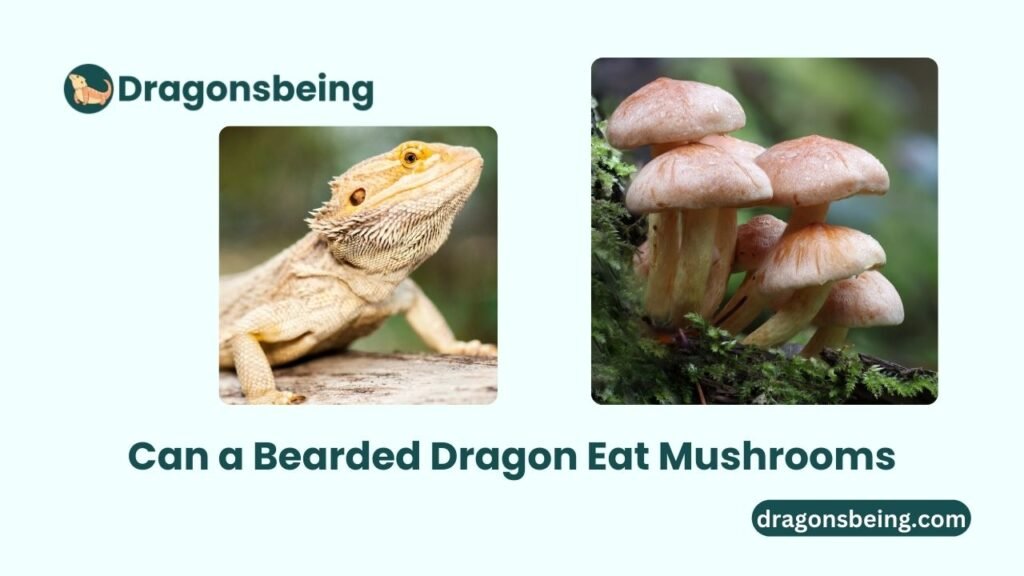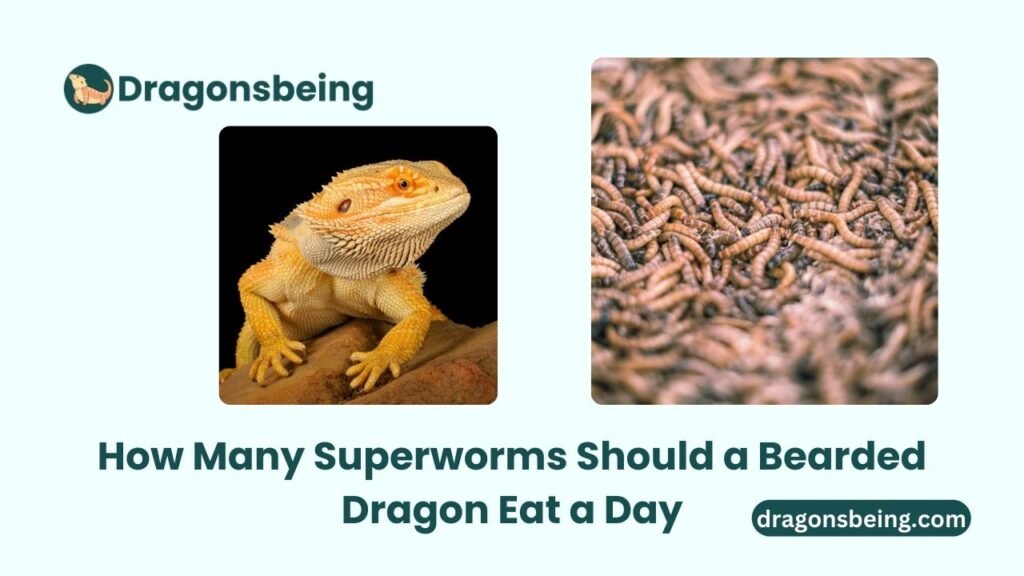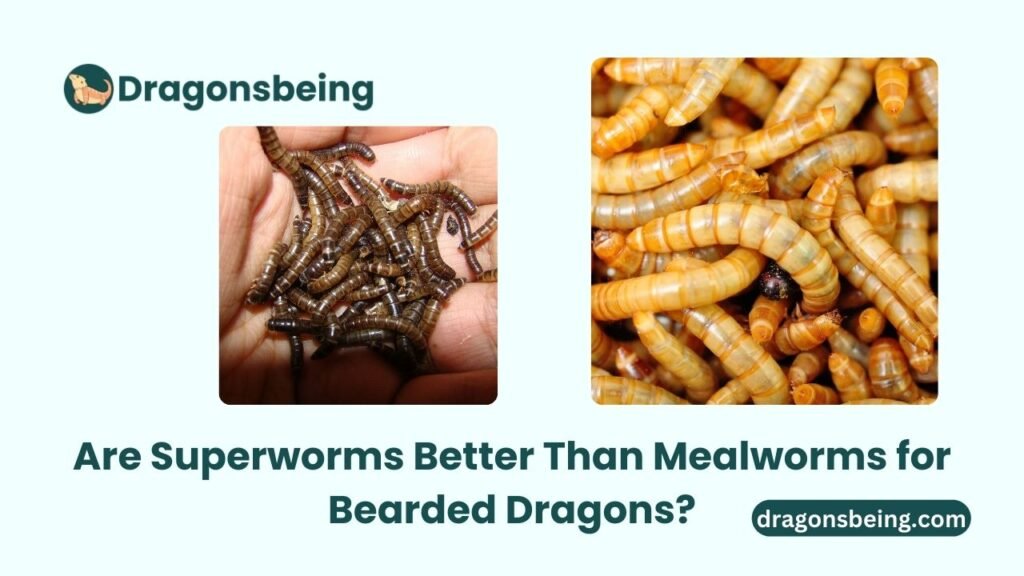No, bearded dragons cannot eat mushrooms as they are toxic and contain harmful levels of phosphorus, making them unsafe for your pet’s health.
Mushrooms are a versatile and delicious ingredient in human cuisine, packed with nutrients and flavors that add flair to countless dishes. However, as a responsible pet owner, you may wonder: Can Bearded Dragons Eat Mushrooms? While it might seem harmless to share a small bite with your scaly friend, the answer is a resounding no.
Mushrooms pose serious risks to bearded dragons, with their toxic components potentially causing severe health complications. This article delves deep into why mushrooms are dangerous for your pet, what to do in case of accidental ingestion, and safer alternatives for a healthy, balanced diet.
Why Mushrooms Are a No-Go for Bearded Dragons
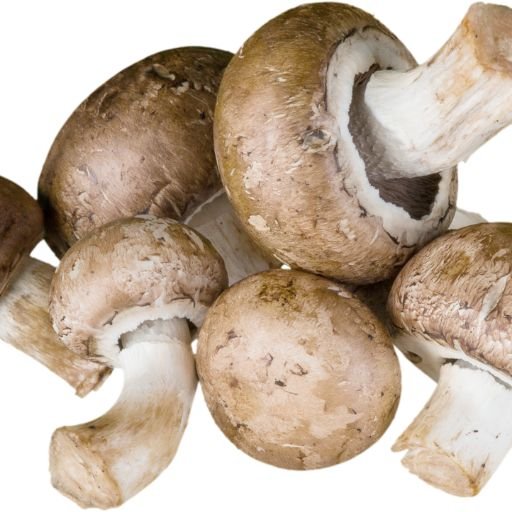
While mushrooms may be packed with nutrients beneficial to humans, their composition makes them toxic for reptiles, especially bearded dragons. Here’s why they should never be part of your pet’s diet:
1. High Phosphorus Content
Phosphorus is an essential nutrient in small quantities, but mushrooms contain dangerously high levels. The calcium-to-phosphorus ratio in foods is critical for a bearded dragon’s health. Ideally, their diet should have more calcium than phosphorus, as phosphorus binds to calcium, hindering absorption.
For example:
- Portobello mushrooms have a calcium-to-phosphorus ratio of 1:16.3, which is extremely harmful.
- This imbalance can lead to metabolic bone disease (MBD), a severe condition that weakens bones, causing pain and deformities.
2. Presence of Oxalates and Oxalic Acid
Oxalates are compounds that bind to calcium, further reducing its absorption. Mushrooms are rich in oxalic acid, exacerbating the calcium deficit. Over time, this can result in brittle bones, reduced mobility, and other calcium-deficiency-related issues.
3. Toxicity of Fungi
Mushrooms are the fruiting bodies of fungi, many of which produce toxins harmful to bearded dragons. These toxins can lead to symptoms ranging from mild gastrointestinal upset to life-threatening conditions such as seizures or organ failure.
What Happens If a Bearded Dragon Eats Mushrooms?
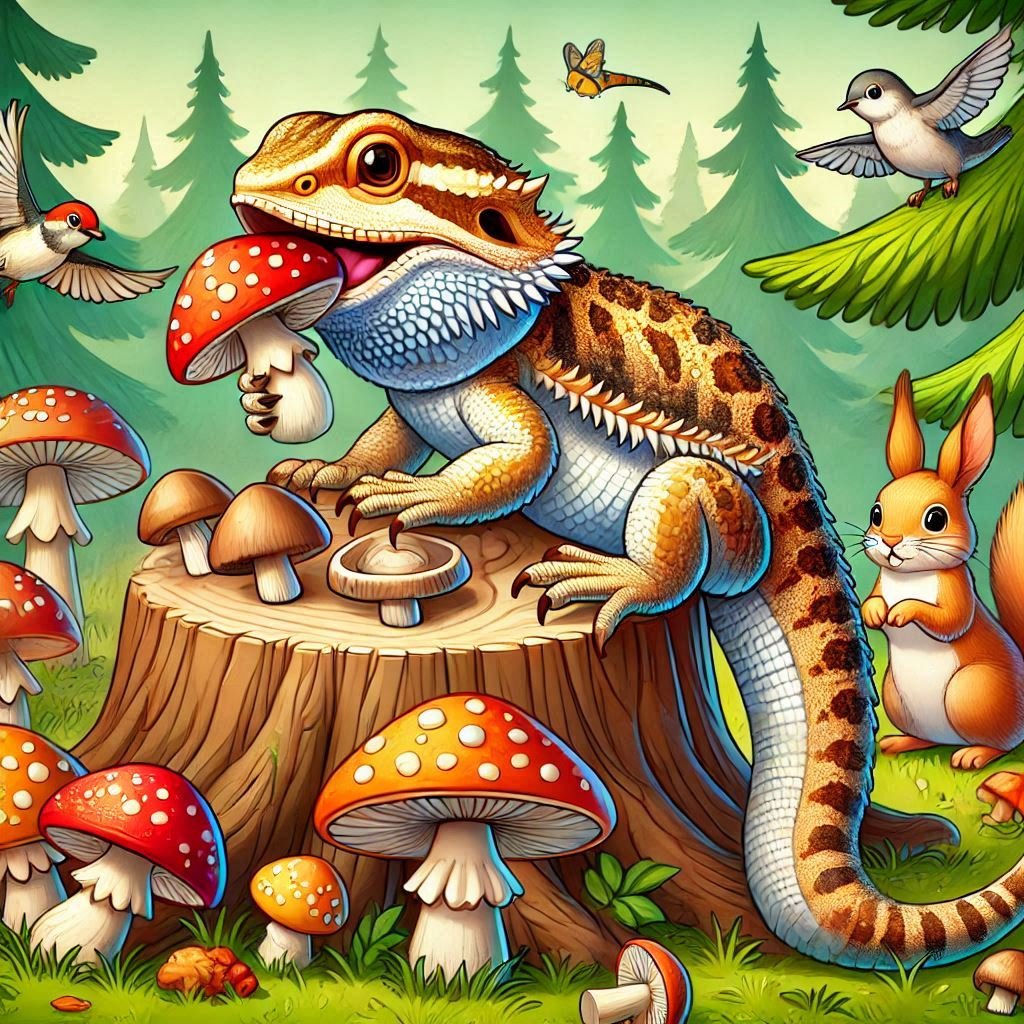
Accidents happen. If your bearded dragon ingests mushrooms, it’s essential to act quickly. Even a small amount can be harmful. Here are the steps to follow:
- Stay Calm: Avoid panicking as your quick response can significantly impact the outcome.
- Contact a Veterinarian Immediately: Provide details about the type of mushroom and the quantity consumed.
- Monitor Symptoms: Look for signs such as:
- Vomiting
- Diarrhea
- Lethargy
- Seizures or shaking
- Excessive salivation
Pro Tip: Always keep your bearded dragon’s diet free from mushrooms and avoid mixing safe vegetables with mushrooms to prevent accidental ingestion.
Safe Alternatives to Mushrooms
Instead of risking your bearded dragon’s health with mushrooms, consider these safe and nutritious options:
| Vegetables | Fruits | Protein Sources |
|---|---|---|
| Collard Greens | Apples (small pieces) | Insects (crickets, roaches) |
| Squash (acorn, butternut) | Blueberries | Mealworms (occasionally) |
| Green Beans | Papaya | Superworms (treat only) |
| Bell Peppers | Mango | Waxworms (high-fat treat) |
These options provide essential nutrients without the risks associated with mushrooms. Aim to create a balanced diet that includes:
- Leafy Greens (50-60%)
- Vegetables & Fruits (20-30%)
- Protein (10-20%, depending on age and size)
Understanding the Role of Calcium in a Bearded Dragon’s Diet
Calcium is a cornerstone of a healthy diet for bearded dragons. It supports strong bones, proper nerve function, and overall vitality. Here’s why maintaining calcium levels is so crucial:
- Growth: Young dragons require higher calcium for rapid bone development.
- Prevention of MBD: Calcium deficiency leads to metabolic bone disease, a preventable yet debilitating condition.
- Egg Production: Female dragons need extra calcium for egg-laying.
Foods high in calcium and low in phosphorus include:
- Collard Greens
- Mustard Greens
- Cactus Pads
Adding calcium supplements with vitamin D3 can also ensure optimal health.
How to Prevent Accidental Mushroom Ingestion
Prevention is better than cure. To keep your pet safe:
- Store Mushrooms Separately: Avoid storing mushrooms near other safe vegetables.
- Educate Caregivers: Inform anyone handling your pet about the dangers of mushrooms.
- Inspect Meals: Double-check food portions to ensure no accidental contamination.
Signs of Mushroom Poisoning in Bearded Dragons
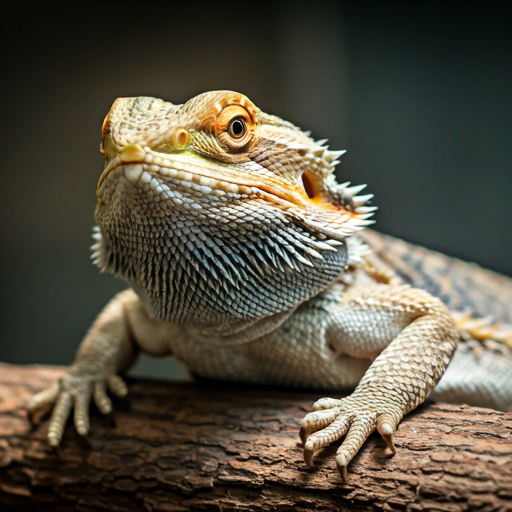
If you suspect mushroom ingestion, watch for these symptoms:
- Gastrointestinal distress: Vomiting or diarrhea
- Neurological signs: Seizures, shaking, or unresponsiveness
- Unusual behavior: Lethargy or excessive salivation
Early detection is key. If you notice any of these signs, contact a veterinarian without delay.
Can Bearded Dragons Eat Mushrooms? A Final Verdict
The answer is unequivocal: bearded dragons should not eat mushrooms. The risks far outweigh any potential benefits. High phosphorus levels, toxic fungi, and oxalates make mushrooms a harmful choice for these reptiles.
FAQs About Bearded Dragons and Mushrooms
1. Can bearded dragons eat cooked mushrooms?
No. Cooking does not reduce the toxic compounds or phosphorus content in mushrooms, making them equally harmful whether raw or cooked.
2. Are any types of mushrooms safe for bearded dragons?
No type of mushroom, including portobello, shiitake, or white button, is safe for bearded dragons.
3. What should I do if my bearded dragon accidentally eats mushrooms?
Immediately contact your veterinarian and monitor for symptoms like vomiting, diarrhea, or lethargy.
4. Can mushrooms be included in small amounts as a treat?
No. Even small amounts of mushrooms can disrupt calcium absorption and pose significant risks.
5. What are the best vegetables for bearded dragons?
Collard greens, mustard greens, squash, and bell peppers are excellent choices for a healthy diet.
6. Why is phosphorus harmful to bearded dragons?
Excess phosphorus binds with calcium, preventing absorption and leading to metabolic bone disease.
7. Are there any other toxic foods for bearded dragons?
Yes, avoid foods like avocado, rhubarb, and citrus fruits as they can also be harmful.
8. How can I ensure my dragon’s diet is safe?
Stick to a balanced diet of greens, safe vegetables, and protein while avoiding toxic foods like mushrooms.
Conclusion
When it comes to bearded dragon care, dietary choices play a critical role in their health and well-being. While mushrooms might seem tempting to share, they are unequivocally unsafe. By understanding the risks and providing a balanced, nutritious diet, you ensure your scaly companion thrives. Remember, the next time you ask, Can Bearded Dragons Eat Mushrooms? the answer is a firm no—always prioritize your pet’s safety over curiosity.

Hi, I’m Dr. Michelle Mayers, a veterinary professional with a deep passion for animal health and well-being. Over the years, I’ve dedicated my life to caring for animals and helping pet owners better understand their furry, feathered, or scaly companions. On my blog, Dragonsbeing, I share insights, tips, and stories that aim to educate, inspire, and connect with fellow animal lovers. Join me at Dragonsbeing as we explore the fascinating world of veterinary care and celebrate the special bond between humans and animals!
